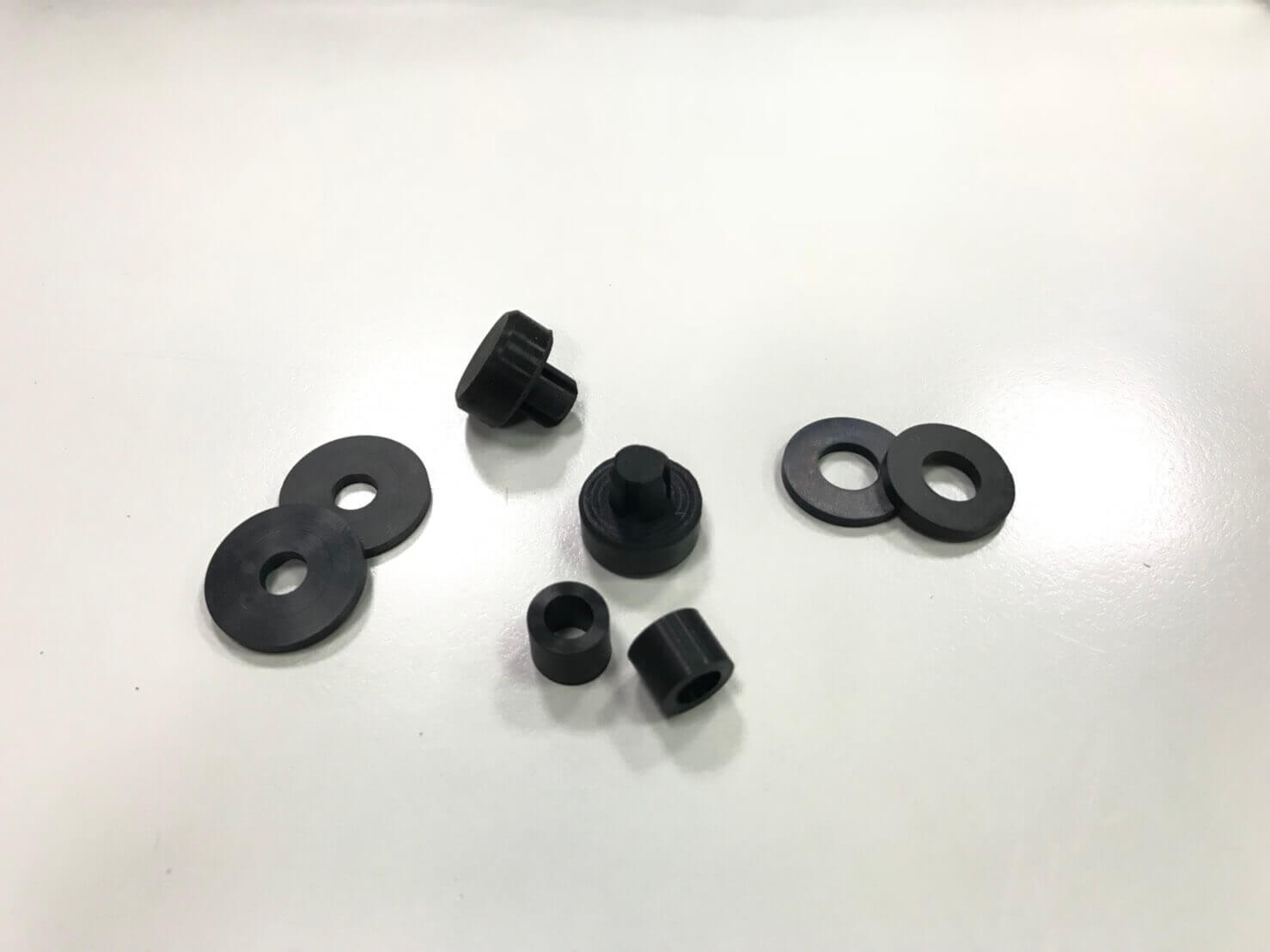
Rubber Injection Manufacturing
Rubber injection molding, Rubber molding
Rubber injection is a manufacturing process used to produce intricate and precise rubber parts by injecting rubber material into a mold cavity under high pressure. It involves the precise injection of uncured rubber material into a closed mold cavity using specialized machinery.
Rubber exhibits some important properties:
Elasticity and Resilience: Rubber is highly elastic and resilient, enduring repeated deformation without damage, ideal for shock absorption, and maintaining shape after compression.
Versatile Resistance: It exhibits resistance to chemicals, oils, solvents, acids, tearing, and abrasion, enduring exposure to harsh conditions.
Functional Adaptability: It demonstrates good electrical insulation, withstands extreme temperatures, UV radiation, and weathering, suitable for diverse applications.
Non-Toxicity and Biocompatibility: Some rubber compounds are non-toxic and exhibit biocompatibility, making them suitable for use in medical devices, pharmaceuticals, and food-related applications.
Rubber's versatile properties make it indispensable across various industries, leading to a wide range of applications:
Tires, gaskets, sealing systems, vibration dampening, cable insulation, medical devices, sport equipment, footwear, o-rings, shock absorption and conveyor belts and rollers.
